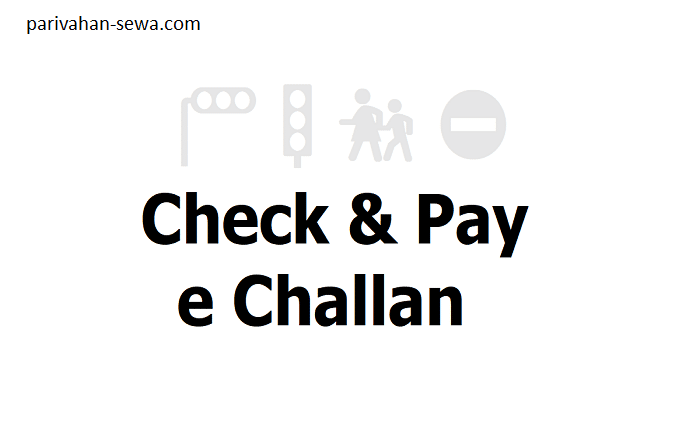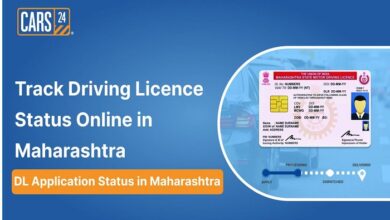Parivahan Sewa Challan: A Comprehensive Guide

Introduction
In today’s fast-paced world, traffic violations are common. To manage these effectively, the government has introduced the Parivahan Sewa Challan system. This comprehensive guide delves into the details of what a Parivahan Sewa Challan is, its importance, how to pay it, and more. Whether you’re a frequent traveler or just a responsible citizen, understanding this system is crucial.
What is a Parivahan Sewa Challan?
A Parivahan Sewa Challan is an official document issued by traffic authorities to penalize drivers for violating traffic rules. It serves as a notice to the violator, indicating the nature of the offense and the fine to be paid. The introduction of the Parivahan Sewa Challan system aims to streamline the process of handling traffic violations, making it more efficient and transparent.
Importance of Parivahan Sewa Challan
The Parivahan Sewa Challan system plays a critical role in maintaining road safety and discipline. By enforcing traffic rules through a structured penalty system, it discourages reckless driving and promotes adherence to road regulations. This system is essential for reducing accidents and ensuring the safety of all road users.
How to Check Parivahan Sewa Challan Status
Checking the status of your Parivahan Sewa Challan is a straightforward process. You can visit the official Parivahan Sewa website and enter your vehicle registration number to access the details of any pending challans. This feature helps motorists stay updated on their status and avoid any legal complications due to unpaid fines.
Paying Parivahan Sewa Challan Online
Paying your Parivahan Sewa Challan online is convenient and easy. The Parivahan Sewa portal provides a secure platform where you can pay your fines using various payment methods such as credit/debit cards, net banking, or UPI. This digital payment option saves time and eliminates the need to visit a physical office.
Legal Implications of Ignoring Parivahan Sewa Challan
Ignoring a Parivahan Sewa Challan can lead to severe legal consequences. Unpaid challans can result in additional fines, legal notices, and even suspension of your driving license. It is crucial to address any issued challans promptly to avoid escalating the situation and facing more significant penalties.
Common Traffic Violations Leading to Parivahan Sewa Challan
Several common traffic violations can result in a Parivahan Sewa Challan. These include speeding, jumping red lights, not wearing seat belts, using mobile phones while driving, and drunk driving. Understanding these violations can help drivers stay compliant with traffic laws and avoid penalties.
Benefits of Parivahan Sewa Challan System
The Parivahan Sewa Challan system offers numerous benefits, including enhanced transparency, streamlined processes, and easy access to information. It helps traffic authorities efficiently manage violations and provides citizens with a user-friendly platform to handle their penalties. This system also supports digital India initiatives by promoting online transactions.
Steps to Contest a Parivahan Sewa Challan
If you believe a Parivahan Sewa Challan has been issued incorrectly, you have the right to contest it. You can file an appeal through the Parivahan Sewa portal or visit the nearest traffic authority office. Providing valid evidence and following the prescribed procedures can help resolve disputes and ensure fair treatment.
Parivahan Sewa Challan for Commercial Vehicles
Commercial vehicles are also subject to the Parivahan Sewa Challan system. Due to their extensive use, these vehicles often face higher scrutiny. Fleet managers and drivers of commercial vehicles must ensure compliance with traffic rules to avoid penalties and maintain smooth operations.
Future of Parivahan Sewa Challan System
The future of the Parivahan Sewa Challan system looks promising with continuous advancements in technology. Integration with AI and data analytics can enhance the accuracy and efficiency of issuing challans. Additionally, increased awareness and strict enforcement of traffic rules will further improve road safety and compliance.
Conclusion
The Parivahan Sewa Challan system is a vital tool in maintaining traffic discipline and ensuring road safety. By understanding how it works, checking your status, paying fines promptly, and knowing your rights, you can navigate this system effectively. Staying informed and compliant not only helps you avoid penalties but also contributes to a safer driving environment for everyone.
FAQs
1. What should I do if I lose my Parivahan Sewa Challan?
If you lose your Parivahan Sewa Challan, you can retrieve the details online using your vehicle registration number on the Parivahan Sewa website.
2. Can I pay my Parivahan Sewa Challan in installments?
Currently, the Parivahan Sewa Challan system does not support installment payments. Fines must be paid in full.
3. How long does it take for a Parivahan Sewa Challan to reflect online?
It usually takes a few hours to a couple of days for a Parivahan Sewa Challan to reflect online after being issued.
4. What happens if I pay my Parivahan Sewa Challan late?
Paying your Parivahan Sewa Challan late can result in additional fines and legal consequences. It is advisable to pay promptly to avoid further penalties.
5. Can I contest a Parivahan Sewa Challan if I disagree with it?
Yes, you can contest a Parivahan Sewa Challan if you believe it was issued incorrectly. Follow the appeal process on the Parivahan Sewa portal or visit the nearest traffic authority office with relevant evidence.





